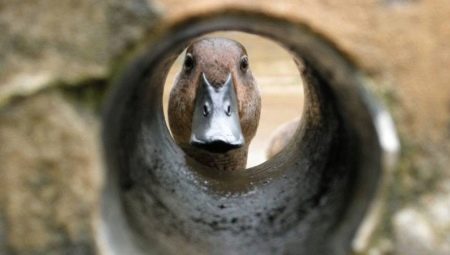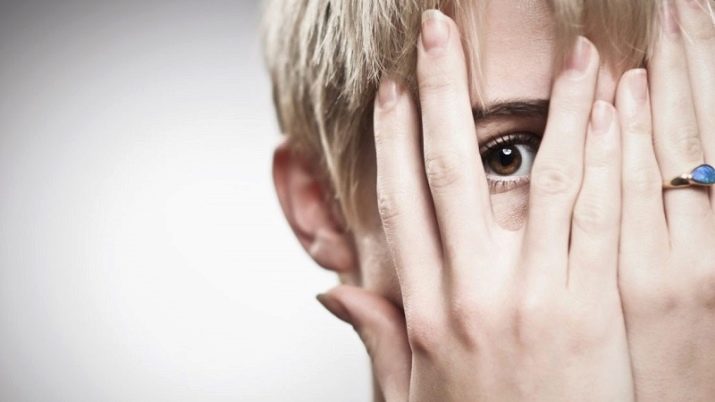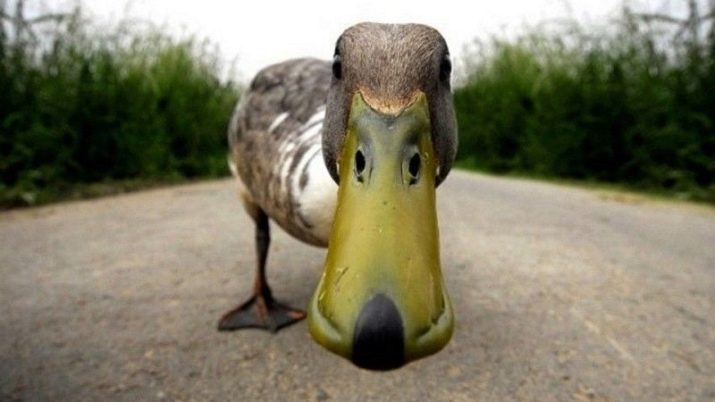All about anatidaphobia

Among several hundred human fears there are so unusual and even strange that one can only wonder at the unexplored capabilities of the human brain. Such rare and mysterious phobias, in particular, include anatidaphobia - fear that there must be a duck in the world that is watching you.
Description
Anatidaphobia and ornithophobia (fear of birds) should not be confused. With ornithophobia of any form, no matter what birds cause terror, a person is afraid of the bird, its feathers, the sounds it makes, and much more. Anatidaphobes are not afraid of either the sight of ducks or quacking, they are only afraid that one of them is sure to watch them closely.
How many people suffer from such a phobia is not known for certain, psychiatry is available for analysis only a few cases, so it is premature to draw conclusions about the prevalence of such fear.

A person who is afraid of birds generally experiences intense fear when faced with a frightening object. With anatidaphobia, fear is almost always present, because the patient knows for sure - no matter what he does, wherever he goes, the duck sees everything and watches him intently, attentively, unkindly. Ducks can hardly be called good-natured birds. They, like geese, tend to show aggression towards a person, flap their wings, attack, pinch painfully. And also ducks are incredibly curious and, in fact, love to observe their own kind and people.
Nevertheless, fear is irrational, because a duck, even if it is observing a person, cannot harm him by this action. However, the deeper parts of the brain, suffering from human anatidaphobia, recognize the very idea of a possible pursuit by a duck as a signal of danger.A strange phobia can border on persecution mania, a delusional state, then a person may need a completely different treatment.
Is this phobia a disease? In the full sense of the word - no. But she refers to the category of phobic mental disorders, classified as isolated phobias by the International Classification of Diseases.
The disorder is called so pretentiously because of the confluence of two words - anatidae - ducks, waterfowl and "phobos" - fear. The phobia seems ridiculous only to those who are not familiar with such fear. The anatidaphobes themselves are usually not laughing.
Of all cases of fear of being chased by a duck, most of them are among women - they are the ones who most often suffer from this phobic disorder.

Causes of occurrence
As already mentioned, there are only a few people in the world with such a phobia, so there is no way to study the issue globally. According to experts, the only reasonable reason for a mental disorder today may lie in the negative experience of communicating with ducks in childhood and adolescence. Most often, the prerequisites for a phobia develop at the age of 3 to 7-8 years. For an adult, the size of a duck is insignificant. But if the bird rushes at the child, it will seem big and scary to him.
The child could be frightened by a sharply fluttering duck that flew past the face, as well as an annoying bird that did not want to be left behind. Try going to the zoo and feeding the ducks. One of them (and maybe more than one) will surely follow you, begging for food. She will follow you along the entire fence as long as she can, as long as you are nearby.
In theory, an observant child with a rich imagination and excessive impressionability can pay attention to this feature of waterfowl. If the fear factor is combined with such a conclusion, then there is a possibility that the human psyche will fix the relationship - duck-danger-surveillance-pursuit.
Further, it all depends on the type of disorder. If the matter is limited to only a phobia, then the fear that the duck is watching will arise when meeting with such a creature, when seeing a duck on TV or in pictures. If a manic delusional state is added, that a person is constantly convinced that a duck is following him, then this is a more severe mental disorder. Sometimes fear develops against the background of information about fear.
There lived a child and did not know that one could be afraid of a tracking duck. Then he learns about a strange phobia, tries on the feelings of the patient (as we all subconsciously do at any age), and the fantasy does its job - a feeling of fear arises. First, a little anxiety, and then a full-fledged phobic disorder, if it was not possible to cope with a little anxiety.
Important! Unfortunately, the exact mechanisms of the formation of this phobia are unknown, so scientists and doctors can only put forward hypotheses.

Symptoms and Signs
The manifestation of anatidaphobia is not much different from any other phobic disorder. But there are also some nuances, experts say. The whole point is in some delusional fear, so a person can give the impression of a big eccentric. He is almost always in an anxious state, he may not leave the feeling that the duck is somewhere nearby and is closely watching his actions.
A person often flinches at sharp unexpected sounds, and at the sight of a real waterfowl may experience an attack of a panic attack. The release of adrenaline into the blood provokes an increase in heart rate, an increase in pressure, palms and back begin to sweat, tremors in the arms and legs may appear. It is difficult to swallow - the mouth is dry, the pupils dilate, the skin becomes pale.
In severe cases, short-term loss of consciousness (fainting) may occur. Diagnosis is usually straightforward.Anatidaevphobe willingly tells himself about what scared him so much, as well as about his suspicions about "the ubiquitous duck that sees everything." At the sight of a duck, a person tries to run away and hide or, on the contrary, freezes rooted to the spot, unable to take a single step.
If a person suffers from this phobia, he will try to exclude any mention of these birds from his daily life. He will not go to the embankment to feed the ducks; moreover, he will always bypass this embankment. He will not buy a toy in the shape of a duck, he will not watch cartoons and films in which there are pictures of ducks. And if the phobia is not associated with a feeling of persecution, then it should not cause great inconvenience - we do not often see ducks on the street. But one cannot get rid of the fear of the tracking duck, even if the person understands perfectly well that she simply has nowhere to come from nearby.


Treatment
The issues of the therapy of anatidaphobia are as acute as the issues of determining the etiology of the disorder. It is believed that standard therapy for phobic disorders can help a person; the issue has not been studied in more detail. Given the myriad of "white spots" associated with this strange phobia, it is believed to be quite difficult to treat. Self-help and folk methods are out of the question. First of all, it is important to see a psychiatrist. Not a psychologist who solves emotional problems, not a therapist who treats standard phobias, namely to a psychiatrist, given that the fear of surveillance by a bird may be associated with a persecution delusion.
Diagnostics consists in conversation, standard tests for anxiety, thinking, logic, depressive disorders. An MRI or CT scan of the brain may be prescribed to exclude organic lesions of the central nervous system. If elements of persecution mania are found, inpatient treatment is prescribed with the use of tranquilizers and antipsychotics, a long course of psychotherapy.
In the absence of delirium, but there is a fear of ducks, it is recommended to go straight to psychotherapy. Gestalt therapy is considered effective, as well as cognitive-behavioral psychotherapy. The doctor identifies events that had such a strong impact on the patient, sometimes for this you have to immerse the patient into a hypnotic trance. Then, systematically and gradually, the doctor replaces the erroneous attitudes with more positive ones.
With successful treatment, the intensity of fear decreases after a few months, and after six months or a year, a person may even sympathize with ducks in general. In any case, the offer to go for a walk along the embankment and feed the ducks will not cause fear, panic attack or other manifestations in him. Sometimes for treatment it is necessary to use medicines as well as not an independent, but complex treatment. In case of severe anxiety, I can recommend sedatives, antidepressants, sleeping pills for sleep disturbances.
Without treatment, anatidaphobia does not go away by itself, it tends to progress, worsen, concomitant mental disorders join, therefore it is recommended to seek qualified medical help as soon as possible.









